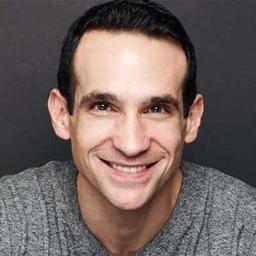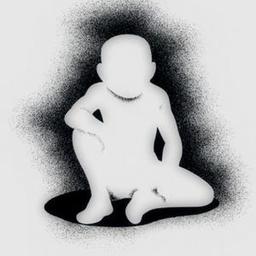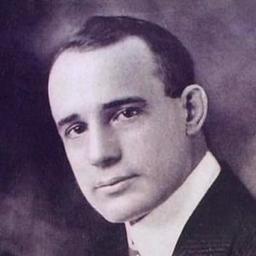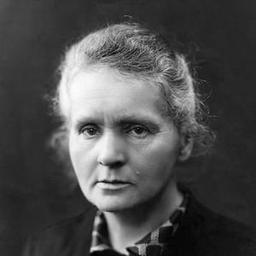
Clayton Christensen
Clayton Christensen was an American academic and business consultant who developed the theory of "disruptive innovation", which has been called the most influential business idea of the early 21st century. He was born on April 6, 1952, in Salt Lake City, Utah, and grew up in the Rose Park neighborhood. Christensen received his B.A. in economics from Brigham Young University, an M.Phil. in applied econometrics from Oxford University, where he studied as a Rhodes Scholar, and an MBA with High Distinction from the Harvard Business School.
23 Quotes
"Where Does Growth Come From? | Clayton Christensen | Talks at Google"
— Clayton Christensen
Where Does Growth Come From? | Clayton Christensen | Talks at Google"Clayton Christensen is an award-winning Harvard Business School professor and author of five books, including The Innovator's Dilemma, which received the Global Business Book Award for the best business book of the year."
— Clayton Christensen
Where Does Growth Come From? | Clayton Christensen | Talks at Google"After decades of watching great companies fail, we’ve come to the conclusion that the focus on correlation—and on knowing more and more about customers—is taking firms in the wrong direction."
— Clayton Christensen
Know Your Customers’ “Jobs to Be Done”"What they really need to home in on is the progress that the customer is trying to make in a given circumstance—what the customer hopes to accomplish. This is what we’ve come to call the job to be done."
— Clayton Christensen
Know Your Customers’ “Jobs to Be Done”"When we buy a product, we essentially “hire” it to help us do a job. If it does the job well, the next time we’re confronted with the same job, we tend to hire that product again. And if it does a crummy job, we “fire” it and look for an alternative."
— Clayton Christensen
Know Your Customers’ “Jobs to Be Done”"The insight into the job the customers needed done allowed the company to differentiate its offering in ways competitors weren’t likely to copy—or even comprehend."
— Clayton Christensen
Know Your Customers’ “Jobs to Be Done”"“Job to be done” is not an all-purpose catchphrase. Jobs are complex and multifaceted; they require precise definition."
— Clayton Christensen
Know Your Customers’ “Jobs to Be Done”"“Job” is shorthand for what an individual really seeks to accomplish in a given circumstance."
— Clayton Christensen
Know Your Customers’ “Jobs to Be Done”"The circumstances are more important than customer characteristics, product attributes, new technologies, or trends."
— Clayton Christensen
Know Your Customers’ “Jobs to Be Done”"Jobs are never simply about function—they have powerful social and emotional dimensions."
— Clayton Christensen
Know Your Customers’ “Jobs to Be Done”"A deep understanding of a job allows you to innovate without guessing what trade-offs your customers are willing to make. It’s a kind of job spec."
— Clayton Christensen
Know Your Customers’ “Jobs to Be Done”"When you see a product or service that no one has successfully copied, the product itself is rarely the source of the long-term competitive advantage."
— Clayton Christensen
Know Your Customers’ “Jobs to Be Done”"Rowland thinks that competitors saw themselves in the “doll business,” whereas she never lost sight of why the dolls were cherished: the experiences and stories and connections that they enable."
— Clayton Christensen
Know Your Customers’ “Jobs to Be Done”"The final piece of the puzzle is processes—how the company integrates across functions to support the job to be done. Processes are often hard to see, but they matter profoundly."
— Clayton Christensen
Know Your Customers’ “Jobs to Be Done”"Focusing processes on the job to be done provides clear guidance to everyone on the team. It’s a simple but powerful way of making sure a company doesn’t unintentionally abandon the insights that brought it success in the first place."
— Clayton Christensen
Know Your Customers’ “Jobs to Be Done”"What experiences will help customers make the progress they’re seeking in a given circumstance?"
— Clayton Christensen
Know Your Customers’ “Jobs to Be Done”"What are the social, emotional, and functional dimensions of the job?"
— Clayton Christensen
Know Your Customers’ “Jobs to Be Done”"The fundamental problem is, most of the masses of customer data companies create is structured to show correlations:"
— Clayton Christensen
Know Your Customers’ “Jobs to Be Done”"What was stopping buyers from making the decision to move, he hypothesized, was not a feature that the construction company had failed to offer but rather the anxiety that came with giving up something that had profound meaning."
— Clayton Christensen
Know Your Customers’ “Jobs to Be Done”"Good innovations solve problems that formerly had only inadequate solutions—or no solution."
— Clayton Christensen
Know Your Customers’ “Jobs to Be Done”"Jobs aren’t just about function—they have powerful social and emotional dimensions."
— Clayton Christensen
Know Your Customers’ “Jobs to Be Done”"American Girl has prevailed for so long because it’s not really selling dolls: It’s selling an experience."
— Clayton Christensen
Know Your Customers’ “Jobs to Be Done”Explore More Quotes 📚
Want to Save Quotes?
Glasp is a social web highlighter that people can highlight and organize quotes and thoughts from the web, and access other like-minded people’s learning.

















